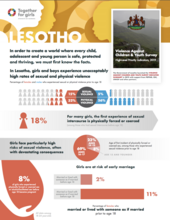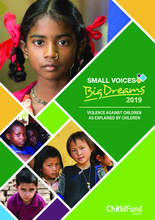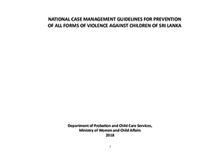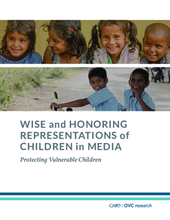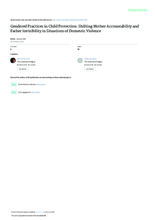Displaying 401 - 410 of 1090
The Lesotho VACS Fact Sheet provides country-specific data on sexual and physical violence against children in Lesotho.
This report presents the main conclusions from the 2019 Small Voices Big Dreams Technical Manual, which outlines in great detail the perceptions and opinions of children and adolescents from all over the world regarding the multiple dimensions of violence exercised against them.
The purpose of the roadmap is to document and communicate the vision and strategy towards establishing, operating and developing the Barnahus model in a simple and accessible format.
The Sri Lanka The Department of Probation and Child Care Services created this national guideline to assist with providing collaborative intervention of Child Rights Promotion Officers and all government social workers to minimize vulnerabilities that lead to violence against children.
This guide from the Christian Alliance for Orphans (CAFO) offers strategies for protecting children in creating and sharing digital media of children.
This paper presents a qualitative analysis of front‐line practices regarding emergency removals in Finnish and Irish child protection.
This paper focuses on the longitudinal examination of perceived reactive attachment disorder (RAD) symptoms and indiscriminate, insecure and pseudomature behavior in foster children, many of them having experienced maltreatment and neglect in the family of origin.
The goal of this study was to simultaneously examine the independent and interactive effects of paternal and maternal corporal punishment, and child temperament on child emotion regulation over time in China.
For this study, ten multilevel meta-analyses were performed to examine factors that can affect instability of foster care placement.
This article illuminates current child protection services (CPS) worker practices in situations of domestic violence in Alberta, Canada where inclusion and exclusion decisions are made for service provision, and the ways in which documents reflect these day-to-day practices.

